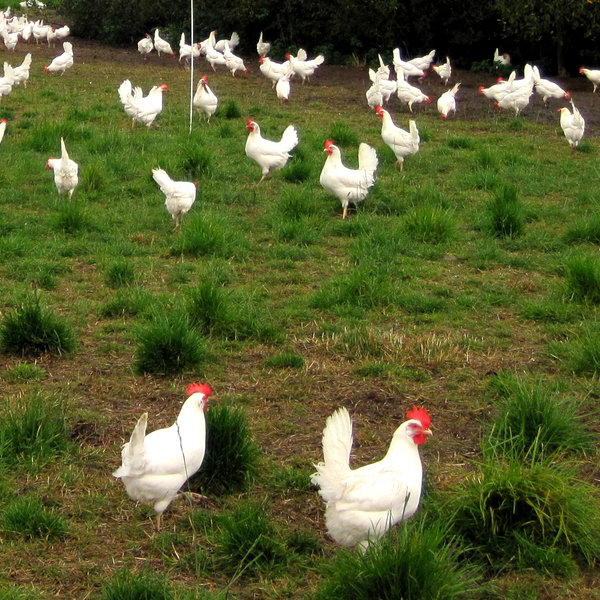Control of parasite infections reduces mortality and improves animal welfare
The retail market share for organic eggs in Denmark is relative high. Unfortunately, there are a number of welfare issues in the organic egg production compared to other production systems - but now new studies show that control of helminth infection can reduce mortality and improve the welfare of hens.

The PhD thesis, entitled “Animal welfare in organic egg production - with emphasis on mortality and helminth infections”, is a part of the CORE Organic II project “HealthyHens” (coordinated by ICROFS) and the Danish project entitled “Fewer dead hens”.
The aim of this PhD study was to investigate animal welfare in organic egg production in Denmark, with emphasis on mortality and helminth infections. This PhD thesis includes data from 15 Danish farms with organic egg production, and the project resulted in three research papers.
The specific hypothesis in the PhD study were that helminth infections (Ascaridia galli/roundworms and Heterakis sp.) increase the mortality rate at peak of lay, and that helminth infections diagnosed at end of lay can be predicted by at least one clinical welfare indicator diagnosed at peak of lay and end of lay.
Moreover, it was examined which management strategies the producers use to maintain a low mortality and control endoparasite (mainly helminth) infections.
Results from the study
The study demonstrated a connection between mortality and the level of infection with helminths (roundworms and Heterakis sp.). The mortality was twice as high for the highly-infected farms observed in summer compared to the low-infected farms, whereas highly-infected farms observed in the winter did not have a significantly different mortality rate than low-infected farms.
The overall findings of the PhD study demonstrates that control of helminth infections could potentially reduce the mortality and improve the welfare of hens with an otherwise good plumage condition, as these hens have the highest incidence of helminth infections.
How to maintain a low mortality
On the basis of the qualitative interviews, the PhD thesis calls attention to three important areas when it comes to maintain a low mortality in the organic hen production:
- The quality of pullets (uniform pullets, good start after placement in the hen house)
- Management and time (daily routines, constant care, time in the hen house)
- Stable supply of feed and water, including roughage
See the entire PhD thesis by Lena Karina Hinrichsen
HealthyHens is a project funded via the ERA-net CORE Organic II and coordinated by ICROFS.
The Danish project 'Fewer dead hens' is funded by "Fonden for Økologisk Landbrug" (The Fund of Organic Farming).